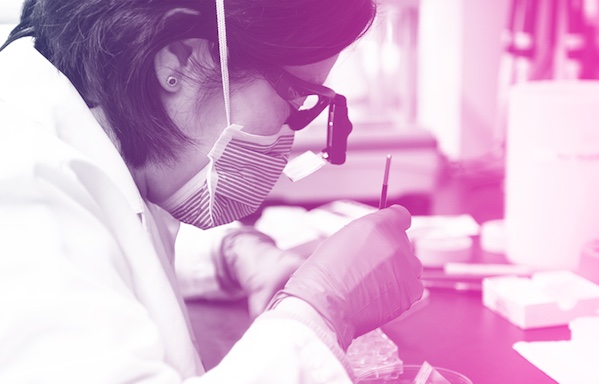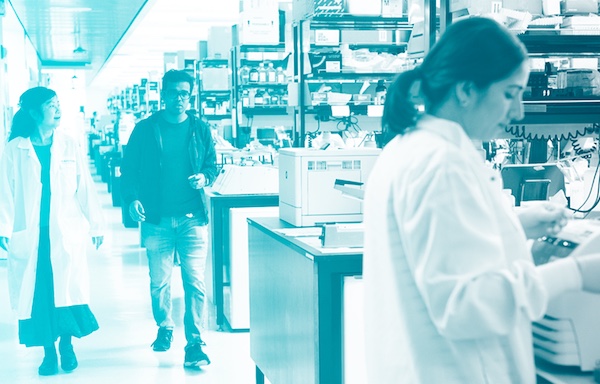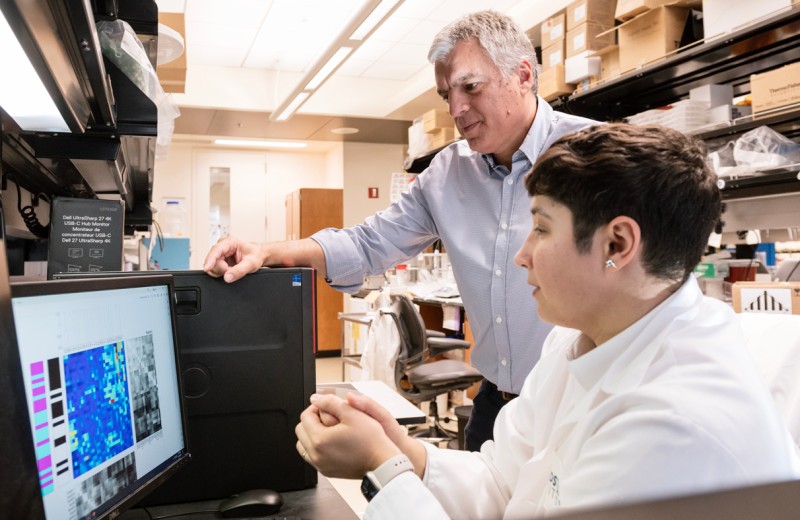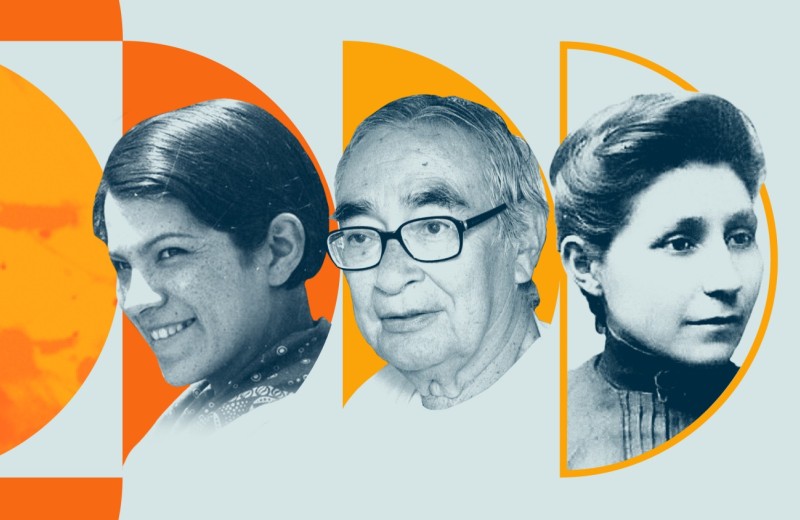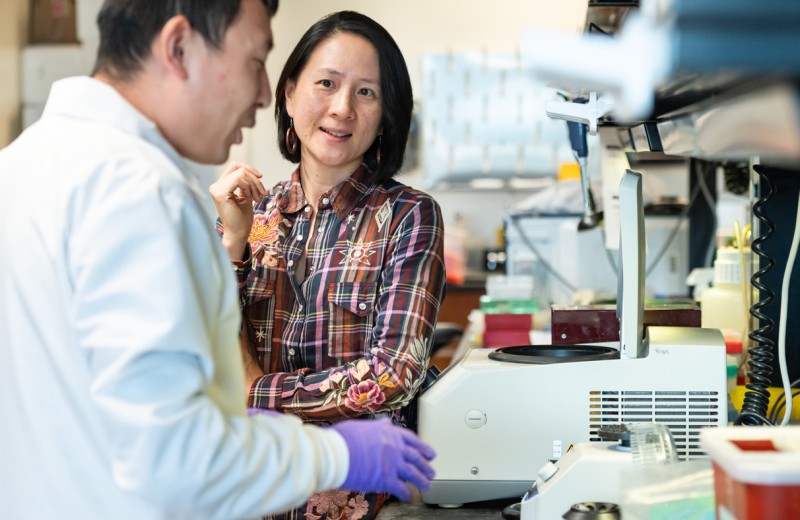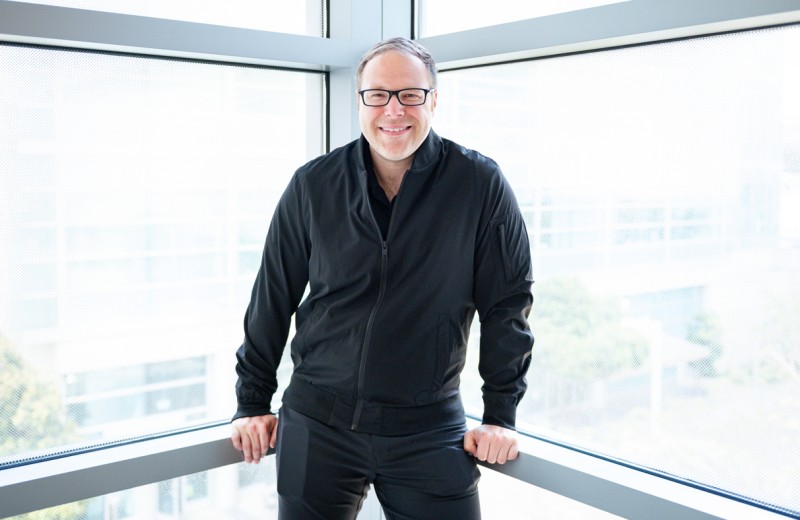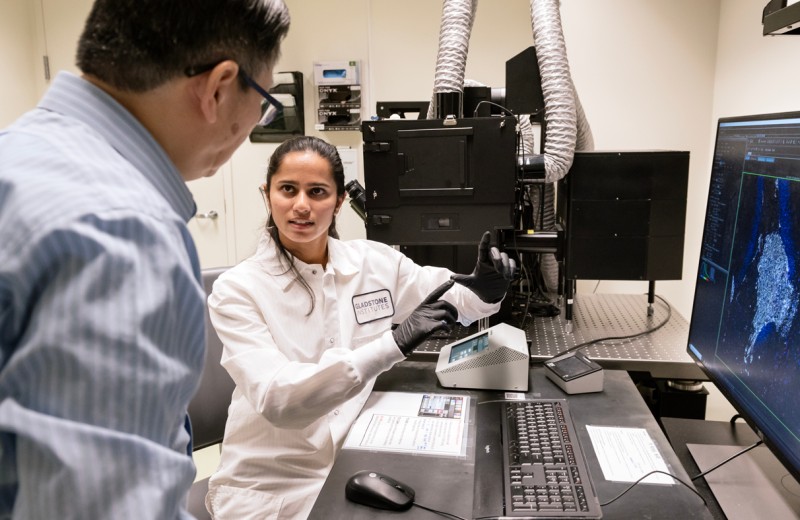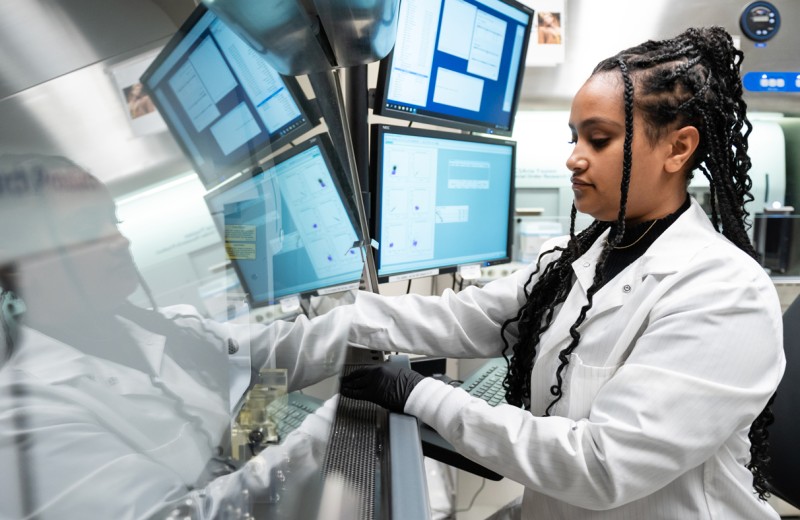For Systems Biologist Nevan Krogan, Effective Research Means Breaking Down Silos
For Systems Biologist Nevan Krogan, Effective Research Means Breaking Down Silos
Cell Press—Gladstone Investigator Nevan Krogan, who was selected as one of the Cell Press 50 Scientists that Inspire, discusses how new technologies can break down barriers in research and reveal more commonalities across different disease areas than currently known.
Gladstone Experts Krogan Lab

